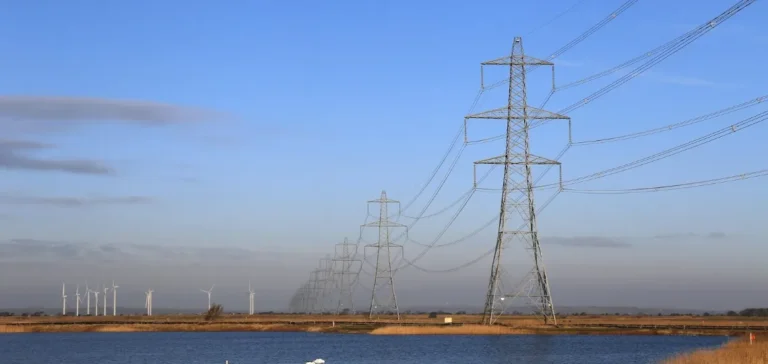The Climate Change Committee (CCC), an independent advisory body to the UK government, published its annual report on June 25, assessing the government’s climate progress. According to this evaluation, 39% of the emissions reductions required to meet legally binding commitments by 2030 either lack credible plans or face significant risks.
Electricity tariffs in question
The report particularly emphasises the urgent need to reform electricity tariffs to lower household bills. Currently, the UK’s electricity-to-gas price ratio is approximately four-to-one, significantly higher than in other European countries such as Ireland or France, where heat pump adoption is more advanced. A reform could potentially lower this ratio to between two and three to one.
The Climate Change Committee observes that despite recent announcements, the government has only planned a consultation without a precise timetable for these tariff reforms. The CCC thus insists on immediate action.
New industrial strategy
A few days before this report, the UK government unveiled its new Industrial Strategy. This strategy aims to reduce electricity costs for energy-intensive industrial businesses by 25% until 2035. The measure, called the British Industrial Competitiveness Scheme, is expected to benefit around 7,000 British companies operating in sectors including automotive, aerospace, and chemicals, potentially reducing their electricity bills by GBP40 per megawatt-hour starting in 2027.
According to government data, the UK’s greenhouse gas emissions fell by 4% in 2024, dropping to 371 million tonnes of carbon dioxide equivalent (mtCO₂e). Compared to 1990 baseline levels, this reduction now amounts to 54%. The electricity production sector notably contributed to this decrease, primarily due to the closure of Britain’s last coal-fired power station at Ratcliffe-on-Soar in October 2024.
Priority actions
Among the priority measures identified by the CCC are accelerating the deployment of heat pumps in existing buildings, implementing regulations to prevent new housing from connecting to gas networks, and intensifying the electrification of industrial processes.
According to the committee, over 80% of the emissions savings required by 2030 will have to come from sectors other than energy production. On its own, massive electrification of surface transportation could account for nearly 30% of the necessary reductions.






















